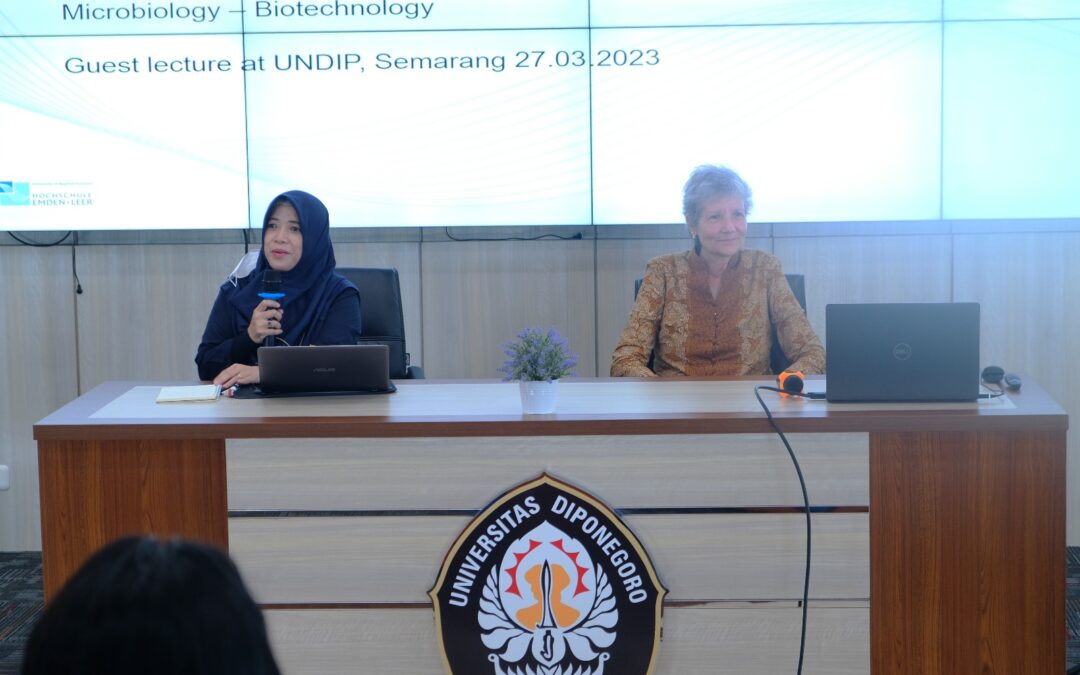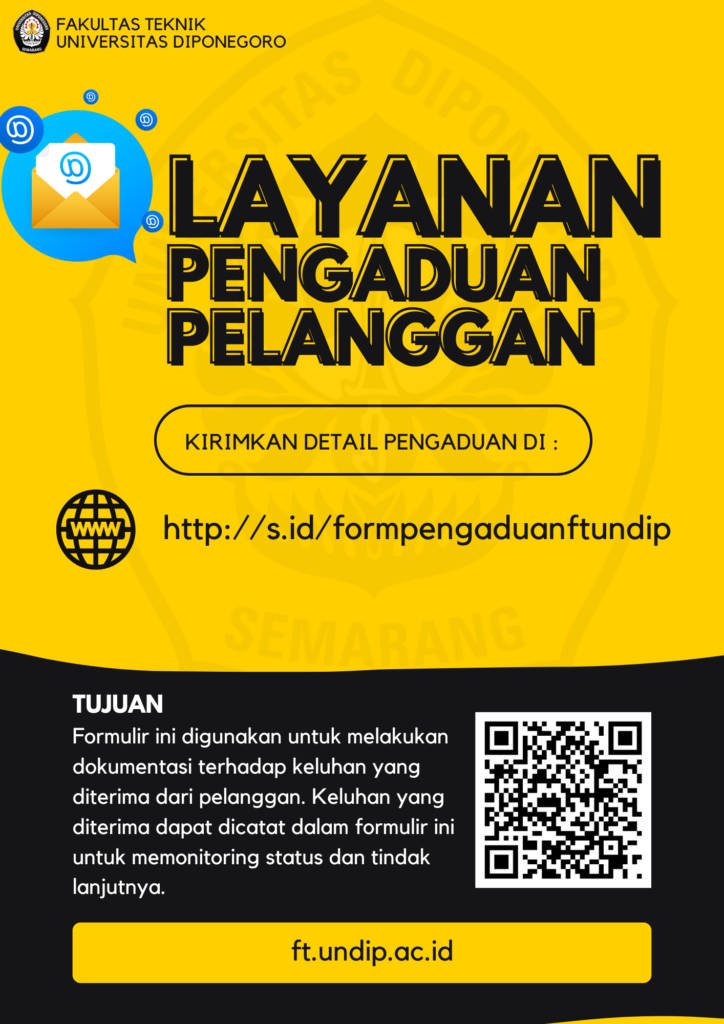(27/3) The Department of Environmental Engineering, Faculty of Engineering, Universitas Diponegoro, conducted the International Lecture Series with the theme “The Role of Microbiology in Municipal Wastewater Treatment” at the Theatre Room, Dekanat Building 4th Floor. Prof. Dr.rer.nat.habil. Claudia Johanna Gallert from the University of Applied Science Emden Leer, Germany, was appointed as the guest lecturer. Mrs. Titik Istirokhatun, S.T, M.Sc., Ph.D. was chosen as the moderator for this open lecture. This lecture is not only attended by academics and students from the Department of Environmental Engineering but also by related studies such as the Department of Biology.
This program was a form of commitment from the Department of Environmental Engineering to fulfill the need to provide the best education for its students that is in line with the obligation to meet the IKU requirements (Indikator Kinerja Utama, or Key Performance Indicators, every department and unit must reach the minimum limits in each indicator). Besides that, this program also becomes the forum to disseminate research in the field of microbiology and its role in wastewater treatment used in developed countries like Germany, and how to apply it in Indonesia. “What are these basics good for? That’s for the lecturers and the stakeholders in respective professional organizations,” Prof. Gallert uttered the goal of the study in her lecture.
The Dean of the Faculty of Engineering, Prof. Ir. M. Agung Wbowo, M.M, M.Sc, Ph.D, delivered opening remarks in this lecture. He expressed his gratitude towards the opportunity given to the Faculty of Engineering to hear a lecture from an expert that comes from a country that had better technologies and knowledge. He hoped that their attendance in the Faculty of Engineering can be a positive chance to enhance the knowledge that had been developed here. He also hoped that the Faculty of Engineering can bond a tighter relationship with foreign parties like the University of Applied Science Emden Leer.
Dr. Ing. Sudarno, S.T., M.Sc, the Head of the Department of Environmental Engineering, expressed his satisfaction with this program. He said that this program not only broadens the student’s understanding related to the topic discussed in the class, but also introduced the new advancement in the technology for wastewater treatment in front of the students. He added that it helps to increase the internationalization in the Faculty of Engineering. “We want to make an ‘international’ atmosphere in this Faculty,” said Mr. Darno.
He also conveyed that this program could be used as the starting point to initiate a cooperation agreement with foreign partners to develop the field of research and community service in the Faculty of Engineering Universitas Diponegoro. He hoped this program could be held regularly with the help of the international networks and the World Class University program that Universitas Diponegoro had initiated. “I hope the network that Universitas Diponegoro already had can help us to organize a similar lecture in the future.”



